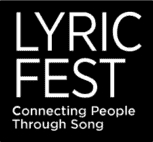 Interview with Thomas Lloyd
Interview with Thomas Lloyd
What were your inspirations for the new song “Fatherly Reflections”? Tell us about this piece’s background and the lyrics.
The poems were published years apart from each other by poet Karl Kirchwey, a colleague of mine at Bryn Mawr College, where he is an associate professor and director of the creative writing program. (I am on the music faculty at Haverford, and direct the bi-college choral program. Karl Kirchwey is currently on leave from Bryn Mawr to serve as the fifth Arts Director of the American Academy in Rome.)
I originally asked Karl a couple of years ago if I could set some of his poetry in a choral composition for a special event on campus. Though a different text was eventually requested by the committee in charge of the event, I was so drawn to Karl’s poetry that I was on the lookout for another opportunity to set some poems of his that I had set aside earlier.
An occasion came with the idea of a new piece for the Lyric Fest program, “The Harmony of Yin-Yang”. The theme was a tricky one to connect with the poetry at first. But the two poems I selected, “Lullaby” and “September,” though published separately, seemed to share a unique sensibility about nature, especially the birth/death, life/decay, young/old, day/night, and other oppositions of nature to which our physical and emotional lives are intimately related. Though the title for the songs as a pair was completely in my mind, not Karl’s, I was also the attracted by the parental point of view hinted at obliquely by both poems and the specific reference to a nearby place with a special aura of its own, Valley Forge, PA. And I must say, to write something to be sung by a performer of Richard Troxell‘s artistry and experience is a real honor.
How did you start writing music?
I began composing and arranging about ten years ago, primarily to fill gaps in programs I was planning for my choirs. I found that it really stretched me as a musician and gave me much fresher view of the scores I was conducting – why did this composer make this choice of melodic inflection? What really makes the harmonic language of that composer distinctive? What interpretive choices do composers make about the poem they are setting?
I’ve generally enjoyed the creative aspect of the work, though the patience and time required call for a special discipline.
How would you describe your composition style?
I can’t say I have arrived at a personal style or harmonic language I’m completely at home with yet. At this point there’s little in the way of fresh mines to explore in either traditional tonal or modernist atonal harmony; and the static tonality and shimmeringly pleasant dissonances of minimalism that have been so dominant recently have become a bit tired in many cases, I find.
What are you currently working on?
I’m using my year of sabbatical leave from Haverford this year to write an extended work for the first time, for chamber choir and instruments, on the life of Dietrich Bonhoeffer, primarily to see if I can find a language that is “native” for me without being either overly cautious or contrived.
Given that my primarily musical facility comes from years of performing rather than composing, I may not be able to attain the level of fluency that composers who devote themselves completely to that craft can earn. But at least I’ll be devoting sufficient time to find out. At minimum, I hope I’ll be able to be a more compelling performer of the music of others for having taken the plunge myself. My recent work with commissioning other composers to write new music for the Bucks County Choral Society has involved Ricky Ian Gordon, Carl MaultsBy, and Jay Fluellen, all of whom write in completely different styles from each other and from me, yet are all the more inspiring to my own work because of that.
In addition to your post at Haverford College as Professor of Music and director of Choral and Vocal studies, you are also an accomplished tenor yourself. Please tell us about your vocal career with Lyric Fest.
Well, I’ve been very fortunate to be occasionally included on the Lyric Fest roster, and have enjoyed it immensely. It happens that good classical tenors are somewhat rare, and prone to cancel at the last minute when snatched up for another engagement. So I’ve been the lucky recipient of opportunities to sing with performers whose voices at a whole other level from my own modest instrument. And then I was able to involve my Haverford/Bryn Mawr Chamber Singers for Lyric Fest’s “White House” program (in February 2009). The students couldn’t stop talking about the Lyric Fest singers with whom they shared the stage, which made their voice teachers, including Suzanne DuPlantis, very happy!
What made you join Lyric Fest’s Board of Directors?
When I came to Haverford and the Philadelphia area in 1996 to direct the choral and vocal studies program for Haverford and Bryn Mawr Colleges as a music faculty member at Haverford, I invited Suzanne DuPlantis to teach voice in our private study program. As she began to develop the idea of Lyric Fest with Laura and Randi, she would often bounce ideas off me. Then after the program got going, they were looking for venues to do second performances, and performing at Haverford along with voice classes for our students was natural, especially with the thematic and contextual nature of their recital format.
I believe Lyric Fest has a wonderful, innovative concept in presenting song recitals and attracts a very high level of performers to their program.
By Inna Heasley. November 2010.
